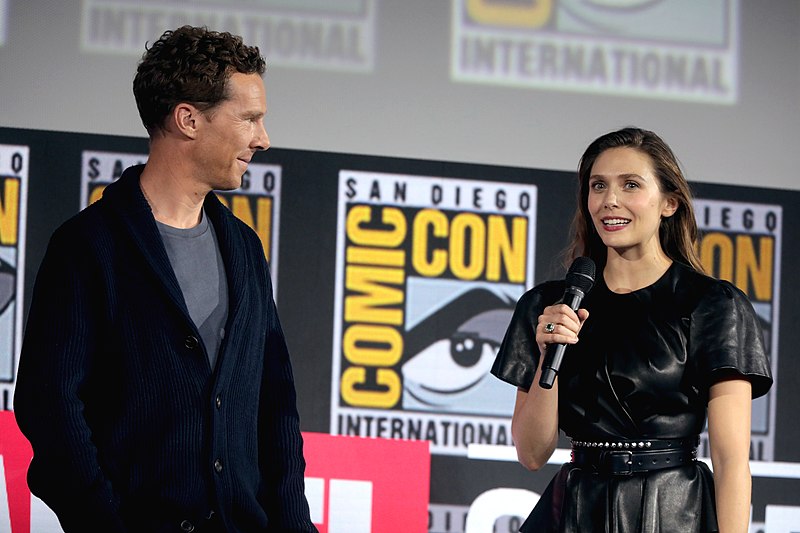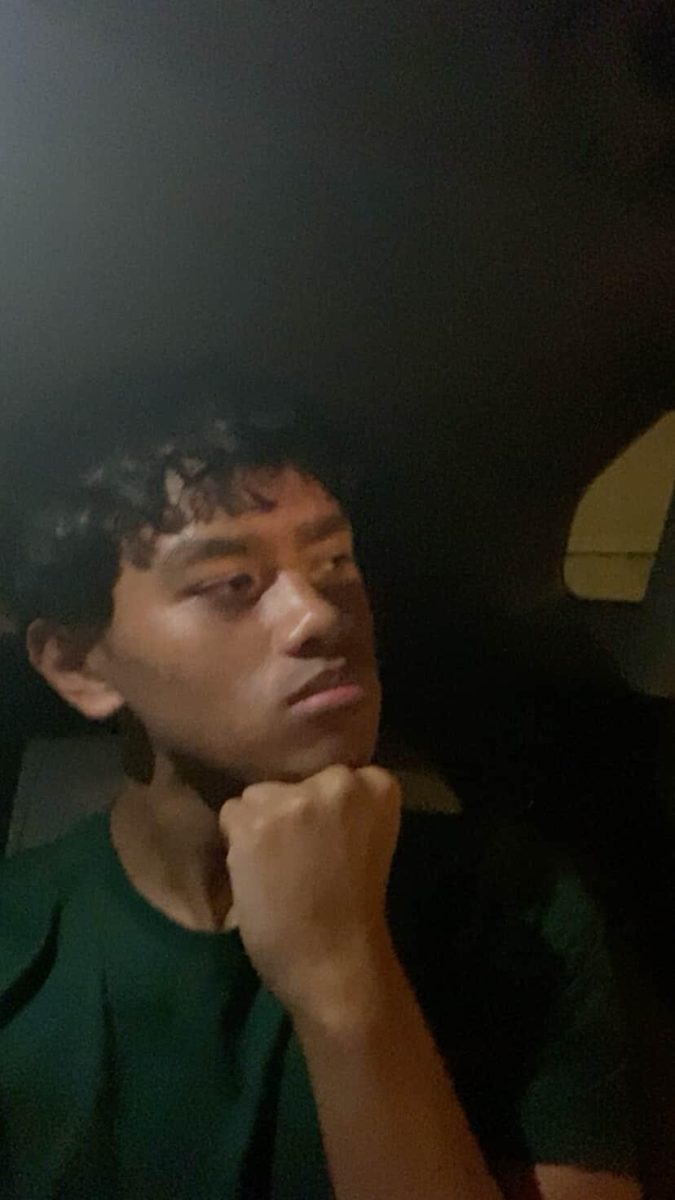Doctor Strange in The Multiverse of Madness: “I think it was bad?”
June 2, 2022
For the past 14 years, Marvel Studios has been known for their top-notch worldbuilding and unmatched consistency. The filmmakers at Marvel have created hit after hit, nearly all of which have been praised by both fans and critics.
I’m no exception. To be honest, I’m probably what most people would call a Marvel fanboy. I’ve seen nearly every Marvel Cinematic Universe (MCU) movie (as well as every MCU TV series), and while I can certainly recognize their flaws, I still love watching almost all of them. However, a unique moment occurred while I was walking out of the theater after watching Marvel’s newest movie, Doctor Strange in The Multiverse of Madness. When my sister asked me what I thought of the movie, I cautiously answered, “I think it was bad?”
But why? What makes the movie worse than its twenty or so predecessors? Well it starts with one thing, and it’s the most important part of all: character.
Let me explain; Critics of the Marvel franchise describe its movies as messes of senseless action, claiming they’re more like graphical spectacles than cinema. But if you ask a Marvel fan what they like about the movies, they probably won’t mention the CGI. What they will talk about are the characters, performances, and stories presented so uniquely by the “Cinematic Universe” format. They don’t return to see more buildings destroyed each year, they return to see interesting new stories brought to life by their favorite characters.
Suffice to say, the creators of Doctor Strange in The Multiverse of Madness must not have screened the movie with many Marvel fans, because the film’s character arcs are written so poorly that it’s confusing.
The movie’s meaninglessness starts with its title character: Doctor Strange. The original Doctor Strange is, in my opinion, one of the most overlooked Marvel movies. It tells the story of a selfish, showboating surgeon who reassesses his life after he’s injured in a car crash. He’s forced to start from the beginning and admit just how little he truly knows despite all his worldly knowledge.
When he appears in later Marvel movies, like Thor: Ragnarok, Avengers Infinity War, and Spider-Man: No Way Home, he plays the role of the wise wizard, guiding the other characters with his intellect.
So there was a lot to work with when exploring Strange this time around: Is he refocusing on his personal life after the events of Avengers Endgame? Will he rekindle his relationship with Rachel McAdams’ character Christine from the original Doctor Strange? Will the movie explore his thirst for knowledge and greatness?
Then the movie starts. And it ends. And Strange has learned nothing.
Yes, some of these concepts are explored; Strange goes to Christine’s wedding in one of the first scenes, and while he’s clearly upset that he’ll never get to be with her, he isn’t upset enough to do anything about it. Even as Strange is visiting an alternate universe with its own Christine, he doesn’t make any advances or try convincing her to come back to his universe. So while Strange’s unrequited love for Christine is a conflict in the story, it isn’t indicative of any character flaws, and he doesn’t grow because of it.
Another way to develop Strange would have been to explore his thirst for knowledge. Strange starts out as a surgeon, then becomes a sorcerer, and then learns so quickly that he becomes the “Sorcerer Supreme.” His intellectual ambition is one of his defining character traits,
and it seems like an investigation into this trait was something the film’s creators wanted to explore. Wanda, the movie’s villain (I’ll get to her later), gains her power from an evil magical book called The Darkhold. Strange learns that in other universes, alternate versions of himself used The Darkhold to save their planets, but those versions of him always succumbed to the book’s power and became corrupted. This seems like an obvious opportunity for Strange to learn that ambition, knowledge, and power aren’t the solution to every situation. He should, based on what he’s learned, refuse to use The Darkhold and instead find some creative way to save the day. That seems logical, except Strange uses The Darkhold at the end of the movie… and receives no consequences. Why? I don’t know, and I honestly don’t think the writers figured that out either.
The movie’s severe lack of any lesson or moral applies not only to Doctor Strange, but also to the main antagonist, Wanda Maximoff (aka Scarlet Witch). Wanda is probably my favorite (living) character in the Marvel Cinematic Universe. Throughout all of Wanda’s appearances, she’s acted as an anti-hero. She’s introduced as a villain in Avengers: Age of Ultron, before being reasoned with and joining the Avengers. She has the capacity to be evil, and even acts on it sometimes, but she can always ultimately be convinced of what is right. She’s powerfully portrayed by Elizabeth Olson, and her character has developed extensively over multiple films and her amazing show Wandavision. In Wandavision, Wanda tries to live out her dreams of having a family, but ends up having to brainwash a town to bring that dream to life (it’s a weird show). Her plan ultimately fails, and she realizes that she must let her family go to give the town their lives back.
This lesson that Wanda learns, that living out her dream of family life isn’t worth hurting others, is apparently something she inexplicably forgot about between Wandavision and Doctor Strange in The Multiverse of Madness, because she spends the entire movie killing people to get her kids back.
Wanda’s lack of complexity was my biggest disappointment with the entire movie. Her character is normally filled with moral grays, but the film uses her as a one-dimensional villain. Basically, she cares about getting her kids back, and doesn’t care about how many people she needs to kill to get to them. When the movie embraces it’s horror-esque elements, Wanda could be easily mistaken for a mindless movie monster like Jason Voorheese or Michael Myers. At the end of the movie, Wanda meets her kids from an alternate universe, who are terrified at the sight of who she’s become, which makes her realize her actions have been wrong, and quit her pursuit
So she learns the same lesson. Again. Granted this time she was killing innocent people rather than controlling their minds, but it feels exactly the same.
So, sitting in the theater, the audience is left with a protagonist who has no real flaws and an uncharacteristically bland antagonist who’s learning something she already knows. And this isn’t just a problem with one aspect of the movie, it’s the problem with the whole movie. Who cares if Doctor Strange’s life is being threatened when I haven’t even been convinced to care about him? Who cares if Wanda is going down the wrong path if I’ve seen her do this exact same thing before? The core of these movies (and all movies, in fact) are their characters. When the audience doesn’t feel like there’s anyone to care about on screen, it doesn’t matter how many special effects, CGI aliens, or universes you add, the final product will be empty.





